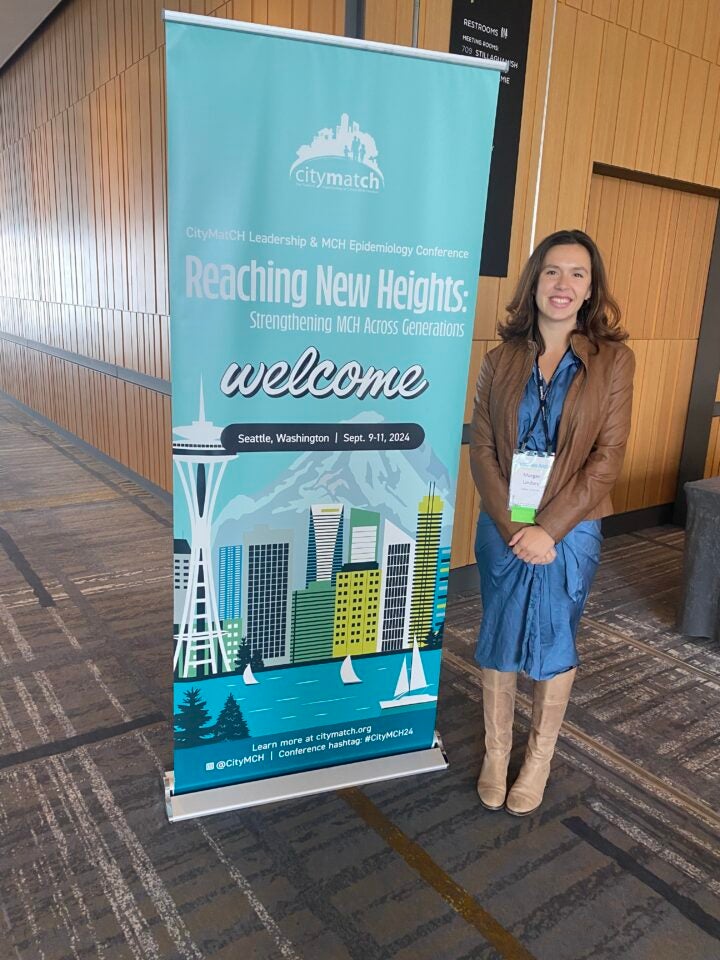Morgan Lindsey, BA, is a second-year MPH student concentrating in Maternal and Child Health. She plans to graduate in May 2025. She is also an elementary school teacher at a local French immersion school. Her interests include the intersection of Maternal and Child health with education, the prison industrial complex, and nutrition. She loves exploring the New Orleans restaurant scene and visiting the city’s beautiful green spaces.

By: Morgan Lindsey
As children, we are taught the distinction between a “need” and a “want.” I remember being told that needs were the essentials required for survival: food, water, and shelter, while wants encompassed anything beyond that. Now, as an adult, I would expand that list to include access to quality healthcare, assurance that one’s shelter is not only available but safe, and access to a supportive community for social connection. At CityMatCH, I had the privilege of learning from professionals dedicated to ensuring equitable access to these fundamental necessities. Their work embodied their conviction that every individual deserves to have their basic needs met, and that particular considerations must be made for the most vulnerable populations. This experience deepened my understanding of the systemic challenges and opportunities associated with meeting these needs, while leaving me feeling inspired to reimagine new partnerships to address them. I was able to attend several presentations seeking to address two of our most basic needs: shelter and food.
Equitable access to housing is an issue I care deeply about. Throughout my time as an undergraduate student, I volunteered with an adult and youth literacy program at a shelter for families experiencing homelessness. That experience opened my eyes to how difficult it can be to secure housing and maintain employment simultaneously. At many shelters, individuals must queue early in the day to secure a bed for the night, making it nearly impossible to sustain or gain employment. Without a steady income, becoming securely housed becomes an insurmountable task. Knowing that the majority of Americans live one missed paycheck away from becoming unhoused, homelessness is a pervasive and urgent issue with significant public health implications. REcognizing the importance of this issue, CityMatch offered several sessions on the agenda to dive deeper into this topic.
One session hosted by the U.S. Department of Housing and Urban Development (HUD) discussed recent
expansions in affordable housing access. The presentation was informative, but the conversation that followed was even more engaging. It became clear that Maternal and Child Health (MCH) professionals and HUD representatives seldom share the same space. Attendees raised important questions about creating voucher programs for pregnant women and implementing provisions for those experiencing financial hardship due to their pregnancy. Topics such as eviction moratoriums and rent control sparked lively discussions. This dynamic exchange was inspiring, as participants both shared insights and gained valuable perspectives.
Another session focused on research evaluating housing conditions for pregnant and postpartum women
across the country. Although the findings were less than desirable, the fact that this research is generating actionable data was encouraging. Being able to point to empirical evidence is crucial for advocating for change in this space. Beyond housing sessions, I also attended several presentations on nutrition programming, including one that highlighted a community-informed intervention called We CAN Cook. This program addressed food insecurity and nutrition among pregnant individuals by offering participants a weekly choice between receiving pre-cooked meals or having fresh groceries delivered to their homes. A particularly exciting finding was that many participants preferred receiving fresh groceries and cooking with their families. They said that the delivery of the groceries not only helped them financially, but also gave them back time, which in turn helped reduce stress. Learning about the success of this program led me to consider its potential feasibility in New Orleans. For instance, the Crescent City Farmers Market’s “Market Mamas” program incentivizes breastfeeding. Could a similar initiative to We CAN Cook support pregnant and postpartum women by addressing food insecurity while simultaneously benefiting local farmers? My notes from the conference are filled with ideas for replicating or supporting such programs in my local community.
The CityMatCH conference exemplified the value of collaboration among MCH professionals. Representatives from diverse sectors—including HUD, state health departments, and academic institutions—gathered to freely exchange ideas and share strategies that have worked in their respective contexts. Being part of this dynamic exchange was deeply inspiring and reinforced my commitment to advancing equitable access to essential resources.
